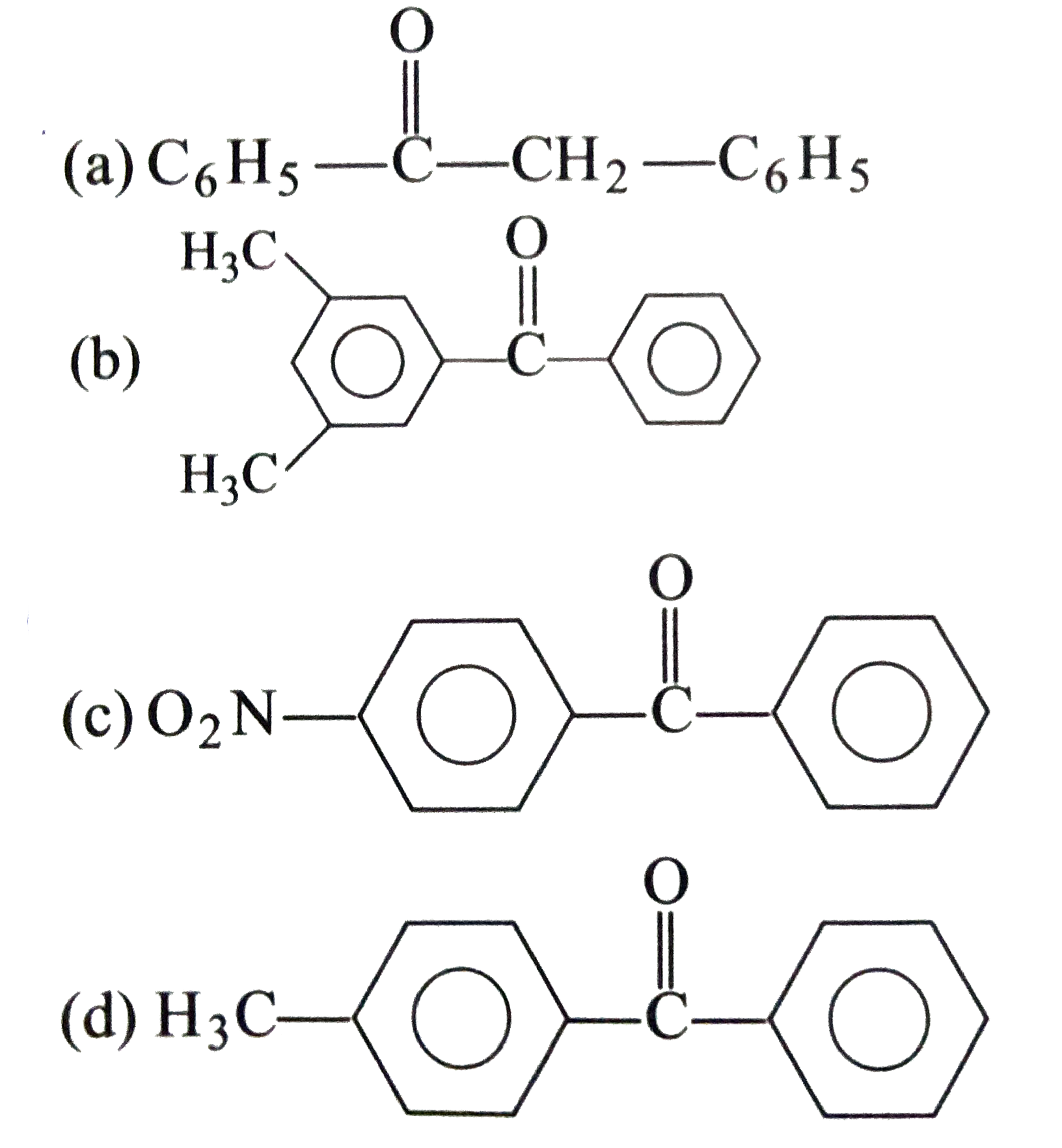Complete Solutions to SOME SOLVED PROBLEMS of chapter ALDEHYDES AND KETONES of Class 12 book with complete answers and questions
| Class 12 | CHEMISTRY |
| Chapter | ALDEHYDES AND KETONES |
| OP TANDON | SOME SOLVED PROBLEMS |
| Number Of Questions | 13 |
| Academic Year | 2023-24 |
Both
 bond undergo addition reactions, give the basic differenc in their nature.
bond undergo addition reactions, give the basic differenc in their nature.
View SolutionExplain why aldehydes are more reactios than ketones.
View SolutionUnder what circumstances may and aldehyde ber prepared by oxidation of primary alcohol, ROH, with acid dichromate?
View SolutionRCOCI fails to give keton when treated with R-Mg-X but with `R_(2)Cd` , a ketone is obtained easily. Expalain.
View SolutionAccount for the boiling points of 2-propanol, propanone and 2-methylpropene (the molecular masses approximately the same) are 355K, 330K and 266K respectively.
View SolutionHow will you prepare the following ?
(i) Acetoxime from acetaldehyde. `" " ` (ii) Propionic anyydride from propionaldehyde.
(iii) Acetone from acetylene, `" "` (iv) `alpha-`Hydroxypropionic acid from acetaldehyde.
View SolutionComplete the following reactions : `CH_(3)CHOoverset(LDA)rarr(A) underset((ii)HOH)overset((i)CH_(3)-overset(O)overset(||)C-CH_(3))rarr(B)`

View SolutionGive the mechanisms of aldol reaction (s) that occurs in the following transformation

View SolutionExplain why the addition of hydrogen cyanided to carbonyl compounds is accelerated by bases and retarded by
View SolutionWhat combination of acyl chloride or acid anhyride and arene would you choice to prepare following compounds?
`C_(6)H_(5)-overset(O)overset(||)C-CH_(2)-C_(6)H_(5)`

View SolutionCompound A of molecular formula `C_(9)H_(7)O_(2)Cl` exists is keto form and predominantly in enolic form B. On oxidation with `KMnO_(4),` A give m-chlorobenzoic acid. Identify A and B
View SolutionWhich one of the following carbonyl compounds forms least stable gem-diol?
(a) `CF_(3)=overset(O)overset(||)C-CF_(3) " "` (b) `CH_(3)=overset(O)overset(||)C-H`
(c) `CF_(3)=overset(O)overset(||)C-C_(6)H_(5) " "` (d) `C_(6)H_(5)=overset(O)overset(||)C-C_(6)H_(5)`
View SolutionExplain the conversion of `C_(6)H_(5)underset("Phenyl acetaldehyde")underset((A))(CH_(2))CHOrarr`
`{:(" "6" "5" "4" "3" "2" "1),(C_(6)H_(5)CH_(2)-CH-CH_(2)-CH_(2)-C-CH_(3)),(" "|" "||),(" "OH" "O),(" "(B)),(" 5-Hydroxy-6-phenylhexan-2-one"):}`
by using Grignard reagent of `BrCH_(2)CH_(2)-underset(O)underset(||)C-CH_(3)(I)` and why (C=O) group is protected ?
View Solution
SOME SOLVED PROBLEMS questions and complete solutions for chapter ALDEHYDES AND KETONES of G.R. BATHLA & SONS CHEMISTRY (HINGLISH) of Class 12
All Exercises from OP TANDON Class 12 CHEMISTRY ALDEHYDES AND KETONES
- ASSERTION-REASON TYPE QUESTIONS
- BRAIN STORMIN PROBLEMS
- ILLUSTRATIONS OF OBJECTIVE QUESTIONS
- MATCHING TYPE
- MATRIX-MATCH TYPE QUESTIONS
- OBJECTIVE QUESTIONS (LEVEL -A)
- OBJECTIVE QUESTIONS (LEVEL -B) SET I
- OBJECTIVE QUESTIONS (LEVEL -B) SET II
- PASSAGE 1
- PASSAGE 2
- PASSAGE 3
- PASSAGE 4
- PASSAGE 5
- PASSAGE 6
- PASSAGE 7
- PASSAGE 8
- PROBLEMS BASED ON STRUCTURE AND PROPETIES
- PROBLEMS FOR PRACTICE
- SINGLE INTEGER ANSWER TYPE QUESTIONS
- SOME SOLVED PROBLEMS